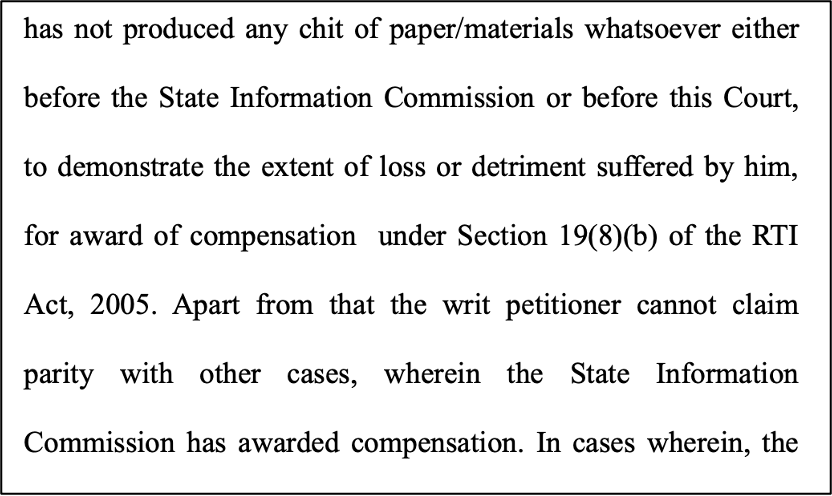In this edition of Court judgments review, we look at Allahabad HC’s observation that Police uniform is not a license to assault innocent citizens, another case where it granted bail to accused in murder case considering welfare of minor children, SC’s observation that for every instance of misuse, there are likely hundreds of genuine cases where Section 498A has acted as an essential safeguard for victims of domestic cruelty, among others.
Allahabad HC: Police uniform is not a license to assault innocent citizens
The case Animesh Kumar vs. the State of Uttar Pradesh arises from a 2022 incident where a doctor alleged that after a minor collision with a police vehicle, several police officials, including a Sub-Inspector and Constables, stopped his car, abused and assaulted him and his companions. He added that they fired shots in the air, damaged his mobile phone, snatched his gold chain and Rs. 16,200 in cash and illegally confined them at a police post. Medical reports corroborated the allegations, showing multiple injuries on the victims. Based on these facts, the trial court summoned the accused officials for offences under Sections 323, 342, and 394 of the IPC, which deal with causing hurt, wrongful confinement, and causing hurt while committing robbery.
The accused police officers sought quashing of the proceedings before the Allahabad HC in the current case. They argued that they were on patrolling duty and acted in the discharge of their official functions. They claimed that the complaint was false and motivated by annoyance over being warned for rash driving. They further contended that prosecution without prior sanction under Section 197 CrPC was invalid. The complainant and the state opposed the application, asserting that the acts were not connected to any lawful duty and that strong prima facie evidence supported the charges.
Justice Raj Beer Singh of the Allahabad High Court ruled that Section 197 CrPC protection applies only when the alleged act is reasonably connected to official duty. In this case, there was no evidence that the applicants were engaged in official duties at the time of the incident. Acts of assault, robbery, and illegal detention could not be considered part of lawful police functions. The Court emphasised that merely being police officials does not provide immunity, and a police uniform is not a license to assault innocent citizens. Finding a prima facie case and determining that the applicants’ actions fell outside the scope of their official duties, the Court dismissed the application.
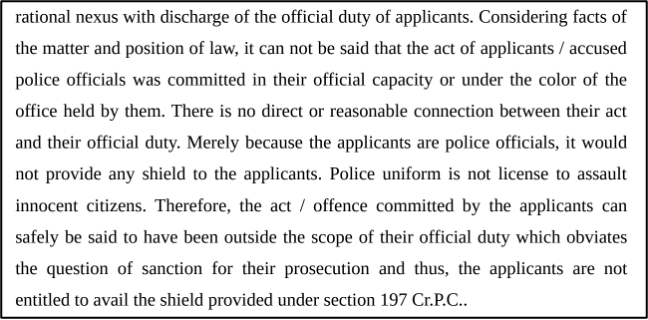
Allahabad HC: HC granted bail to accused in murder case considering welfare of minor children
The applicant in the case, Khushbu Devi vs. State of Uttar Pradesh, was arrested in December 2024 under various sections related to criminal offences. The charges against her included sections related to murder, criminal conspiracy, and the illegal disposal of a body. She was allegedly involved in the murder of her husband, whose body was disposed of by her co-accused. The applicant contended that she was falsely implicated, as there were no direct allegations against her in the FIR lodged in December 2024, for an incident that occurred in November 2024. She was not initially named in the FIR, and the case against her emerged during the investigation, based on a confessional statement made by the co-accused.
The applicant’s counsel argued that the prosecution’s case was based solely on the confessional statement of the co-accused, Sushil Yadav, who was a distant relative of the applicant. The applicant denied any involvement in the murder, asserting that her relationship with her deceased husband was cordial, and there had been no prior complaints against her. Additionally, she argued that she had two minor children, aged six and four, who were left in an abandoned condition following her husband’s death and her incarceration. She pleaded for bail on the grounds of the welfare of her children, who had no one else to care for them.
Justice Rajesh Singh Chauhan of the Allahabad HC considered the applicant’s arguments, including the lack of direct evidence against her, the absence of allegations of rape, and the fact that her name only emerged from the confession of Sushil Yadav. It also noted that she had no prior criminal history and that a charge sheet had been filed. Considering the welfare of her minor children and the absence of any previous complaints against her, the court granted bail, emphasising that the decision was made primarily due to the children’s abandoned condition. The court imposed several conditions, including her cooperation with the trial, appearance in court, and no misuse of bail privileges. However, it clarified that other co-accused persons could not claim bail on similar grounds.
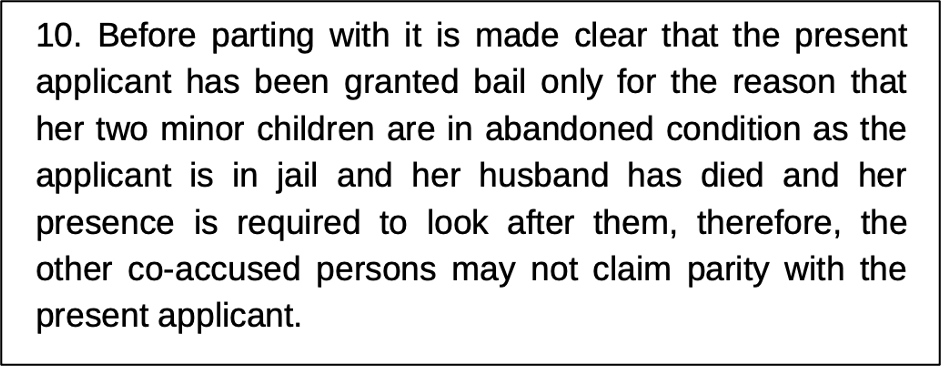
SC: For every instance of misuse, there are likely hundreds of genuine cases where Section 498A has acted as an essential safeguard for victims of domestic cruelty
A writ petition, Janshruti (People’s Voice) vs. Union of India, was filed under Article 32 of the Constitution, seeking directions for the formulation of gender-neutral guidelines and legislation governing the filing of domestic violence and harassment complaints. The petitioner also challenged the constitutionality of Section 498A of the IPC (now Section 84 of the Bharatiya Nyaya Sanhita, 2023), arguing that the provision needed to be revised. Section 498A, which was introduced in 1983, addresses cruelty by a husband or his relatives toward a married woman, particularly in the context of dowry-related abuse.
The petitioner NGO, Janshruti (People’s Voice), argued that Section 498A, and its current application often lead to misuse and harm innocent people. They sought judicial intervention to reform the provisions and make them more gender-neutral, as well as to declare Section 498A unconstitutional. The petitioner emphasised that the law could be misused by those with malicious intent to harass families and extort money. They requested a review of the law’s impact on fundamental rights, particularly in cases of false allegations.
A division bench of Justices Surya Kant and N Kotiswar Singh of the apex court declined to entertain the petition, stating that the provisions of Section 498A did not warrant judicial interference. The court emphasised that the law had a legitimate legislative purpose to protect married women from dowry-related violence and cruelty, which were prevalent social issues in India. It acknowledged that while misuse of the law could occur, isolated instances of abuse were not sufficient to invalidate the provision. The court also highlighted that the provision was aimed at protecting a vulnerable segment of society, in line with the principle of positive discrimination under Article 15 of the Constitution. The court further noted that such concerns about misuse should be addressed on a case-by-case basis by appropriate judicial forums. Ultimately, the court upheld the constitutional validity of Section 498A and dismissed the writ petition.
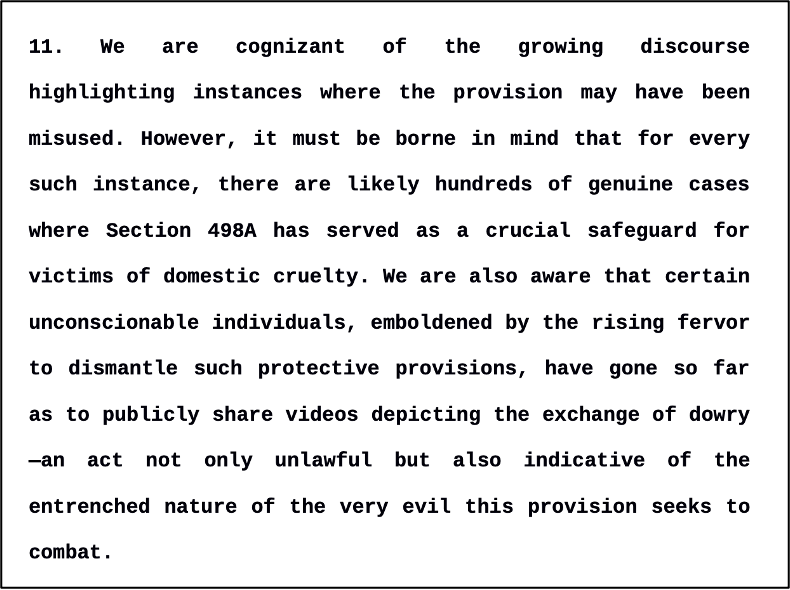
Delhi HC: Gullible individuals fall prey to inducements in the name of religious preachers
In the case, Manu Wahdwa @ Mohit vs. UT of Delhi, the appellant is accused of cheating the complainant, Gurpreet Kaur Rai and her children. They accused him of cheating them of a sum of Rs. 5.6 crores in 2017 and 2018. The accused, who was involved in religious congregations, promised to help the complainant’s son secure a job in Dubai and later convinced her to invest large amounts of money in schemes tied to the religious preacher, who had a significant following. Over several months, the complainant invested money on the assurance of returns and prosperity. However, despite making repeated investments, the complainant never received the promised returns. She later realised that she had been cheated and filed the case.
The petitioner’s lawyer argued that the charge against him is for cheating under Section 420 of the IPC, but claimed this is more of a civil issue with a criminal aspect. They also stated that the petitioner had paid back Rs. 96,00,000 as part of a mediation settlement, but no payments have been made since December 2024. The defence also said that the petitioner had been cooperating with the investigation and that there was no need for him to be arrested.
On the other hand, the prosecutor and the complainant’s lawyer opposed the petitioner’s request for anticipatory bail. They said the petitioner had avoided the investigation, disappeared to an unknown location, and hadn’t paid back the remaining money. Additionally, other victims came forward with similar complaints, saying they had also been cheated by the petitioner in the same way.
The court found that the petitioner had failed to comply with previous orders to repay the money, had evaded the investigation, and had not provided any information regarding the whereabouts of the invested funds. The court acknowledged the manipulation of vulnerable individuals and highlighted the harsh reality where “gullible individuals fall prey to inducements in the name of religious preachers.” The court emphasised the need for custodial interrogation to trace the missing funds. Therefore, the anticipatory bail application was dismissed.
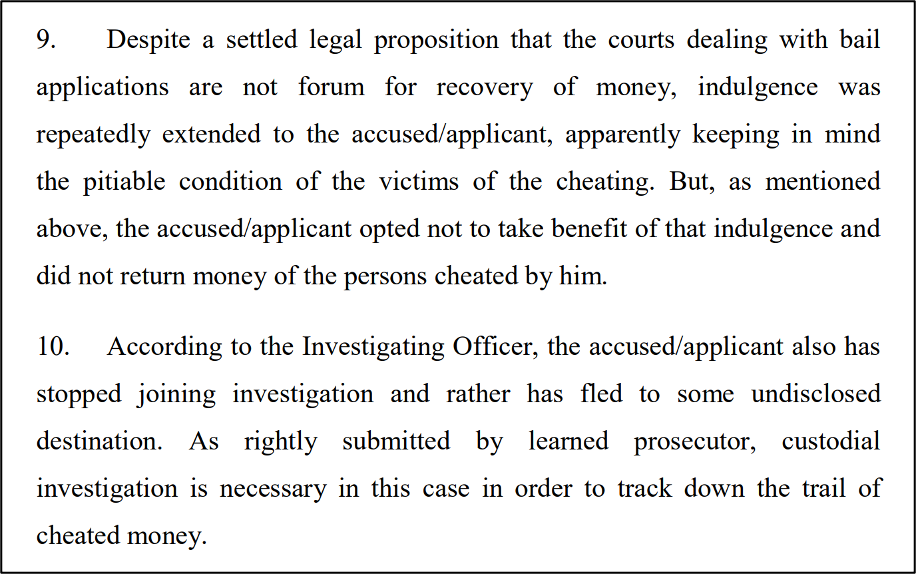
Patna HC: Court denied compensation for delay in providing information due to lack of evidence of loss
In the case, Amit Anand vs. Bihar Information Commission and Others, the petitioner sought compensation from the State Information Commission (SIC) for the delay in receiving his Migration Certificate from the Bihar School Examination Board. Despite qualifying for the LLB entrance exam in 2016, he could not take admission due to the lack of this certificate. After filing several RTI applications and appeals, the Migration Certificate was finally issued in May 2022, allowing him to appear for the LLB exam. Despite this, he sought compensation, referencing a previous case where compensation was granted to others under similar circumstances.
The petitioner argued that the significant delay in obtaining the Migration Certificate had caused personal and academic harm, justifying compensation, as others had been compensated for similar delays. The Board contended that the petitioner had not substantiated any actual loss and had failed to apply for compensation under Section 19(8)(b) of the RTI Act with the SIC.
Justice Rajesh Kumar Verma of the Patna HC ruled that the petitioner had not demonstrated the extent of loss or detriment suffered due to the delay in receiving the Migration Certificate. Additionally, the petitioner had not formally requested compensation from the SIC, nor had he challenged the prior order by the SIC, which had disposed of his case without awarding compensation. As a result, the court dismissed the petition, stating that the petitioner had not followed the necessary procedures to justify the compensation.
